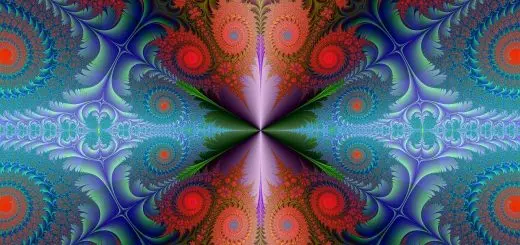Beyond Traditional Medicine: The Power of Reiki Healing

Looking for more amazing products? Check out our online store and explore our collection here! Happy shopping!
Before diving in, please note: This post is for informational purposes only. If you’d like to know more about how we approach topics, feel free to check out our friendly Disclaimer Page.
Hey there, amazing readers! 
We’re committed to delivering quality posts, and your support (even just sticking around despite the ads) means everything to us. So, bear with us, and thanks for helping us keep the good vibes rolling. Now, on to the fun stuff!
TRANSLATE BUTTON AT THE END OF THE ARTICLE
Introduction: Exploring the Benefits of Reiki Healing
Reiki healing is a complementary therapy that has gained popularity for its ability to promote balance and harmony in the body, mind, and spirit.
It is a non-invasive practice that involves the transfer of universal energy from the practitioner’s hands to the recipient, promoting relaxation, stress reduction, and overall well-being.
In this article, we will explore the power of Reiki healing, its history and origins, how it works, its scientific basis, different techniques, and its benefits in comparison to traditional medicine.
Understanding the Fundamentals of Reiki Energy
Reiki energy is based on the belief that there is a universal life force energy that flows through all living beings.
This energy can become blocked or imbalanced, leading to physical, emotional, and mental health issues.
Reiki practitioners are trained to channel this energy through their hands to the recipient, helping to remove energy blockages and restore balance.
The energy is said to be intelligent and will go where it is most needed in the recipient’s body.
The History and Origins of Reiki Healing
Reiki healing was developed by Mikao Usui in the early 20th century in Japan.
Usui was a Buddhist monk who sought to discover a way to heal others and attain spiritual enlightenment.
After undergoing a 21-day meditation retreat on Mount Kurama, he received a spiritual revelation and the ability to heal through the transfer of energy.
Usui went on to teach Reiki to others, and it eventually spread to the Western world in the mid-1900s.
How Does Reiki Healing Work?
Reiki healing works by utilizing the transfer of energy from the practitioner to the recipient.
The practitioner acts as a conduit for the universal life force energy, allowing it to flow through their hands and into the recipient’s body.
The energy is believed to work on a holistic level, addressing physical, emotional, and mental imbalances.
It is important to note that Reiki healing does not involve physical manipulation or the use of drugs or substances.
The Science Behind Reiki: Examining the Evidence
While Reiki healing has been practiced for centuries, its scientific basis is still a subject of debate.
Some studies have shown promising results in terms of its ability to reduce pain, anxiety, and stress.
However, more research is needed to fully understand the mechanisms behind Reiki healing and its effects on the body.
Despite the lack of scientific consensus, many individuals have reported positive experiences and benefits from Reiki sessions.
Reiki Healing Techniques: An Overview
There are several different techniques and approaches to Reiki healing.
The most common technique involves the practitioner placing their hands on or near specific areas of the recipient’s body, allowing the energy to flow and promote healing.
Other techniques may involve visualization, distant healing, or the use of symbols and mantras.
The specific technique used may vary depending on the practitioner’s training and the needs of the recipient.
Reiki vs. Traditional Medicine: Complementary or Alternative?
Reiki healing is often seen as a complementary therapy to traditional medicine rather than a replacement.
It is important to note that Reiki does not diagnose or treat specific medical conditions.
Instead, it focuses on promoting relaxation, reducing stress, and supporting the body’s natural healing abilities.
Many individuals find that Reiki healing can be used in conjunction with traditional medical treatments to enhance overall well-being and support the healing process.
Reiki Healing: Holistic Approach to Wellness
One of the key principles of Reiki healing is its holistic approach to wellness.
It recognizes that physical, emotional, and mental health are interconnected and seeks to address imbalances on all levels.
By promoting balance and harmony in the body, mind, and spirit, Reiki healing aims to support overall well-being and improve quality of life.
Many individuals who practice Reiki regularly report feeling more grounded, calm, and centered.
Benefits of Reiki Healing: Physical, Mental, and Emotional
Reiki healing is believed to have numerous benefits for physical, mental, and emotional well-being.
Some of the potential benefits include:
Reducing stress, anxiety, and depression
Promoting relaxation and better sleep
Easing pain and improving physical symptoms
Boosting the immune system and enhancing overall health
Balancing emotions and promoting emotional healing
Increasing vitality and energy levels
Enhancing mental clarity and focus
Supporting the body’s natural healing process
Improving overall well-being and quality of life
Reiki Healing for Stress Reduction and Relaxation
One of the primary benefits of Reiki healing is its ability to reduce stress and promote relaxation.
The gentle touch and transfer of energy during a Reiki session can help calm the nervous system, release tension, and induce a state of deep relaxation.
This can be particularly beneficial for individuals experiencing high levels of stress, anxiety, or emotional turmoil.
Regular Reiki sessions can help restore balance and promote a sense of inner peace and calm.
Reiki Healing: Empowering Self-Healing Abilities
Reiki healing is often seen as a practice that empowers individuals to take an active role in their own healing process.
By receiving Reiki energy, individuals can tap into their own self-healing abilities and promote balance and harmony in their bodies.
Reiki practitioners often emphasize the importance of self-care and self-awareness as part of the healing journey.
Through regular practice and self-reflection, individuals can develop a deeper connection with their own inner wisdom and intuition.
Incorporating Reiki into Your Wellness Routine: Tips and Practices
If you are interested in incorporating Reiki into your wellness routine, here are some tips and practices to consider:
Find a qualified Reiki practitioner: Look for a practitioner who has received proper training and certification in Reiki healing.
Schedule regular Reiki sessions: Consider scheduling regular Reiki sessions to experience the full benefits of this healing practice.
Many individuals find that weekly or monthly sessions are most effective.
Practice self-Reiki: Learn how to practice Reiki on yourself.
This can be done by placing your hands on different parts of your body and allowing the energy to flow.
Self-Reiki can be done daily as a form of self-care and relaxation.
Explore Reiki classes and workshops: Consider attending Reiki classes or workshops to learn more about the practice and develop your own skills.
This can be a great way to deepen your understanding and connection with Reiki energy.
Create a sacred space: Set up a dedicated space in your home where you can practice Reiki or engage in other self-care activities.
This can be a quiet corner with comfortable seating, soft lighting, and calming decor.
Combine Reiki with other wellness practices: Consider combining Reiki with other wellness practices such as meditation, yoga, or aromatherapy.
These practices can complement each other and enhance the overall healing experience.
Trust your intuition: During a Reiki session, trust your intuition and allow the energy to guide you.
Pay attention to any sensations, emotions, or insights that arise and honor your own healing journey.
Conclusion
Reiki healing is a powerful practice that can promote balance, relaxation, and overall well-being.
While its scientific basis is still being explored, many individuals have reported positive experiences and benefits from Reiki sessions.
By understanding the fundamentals of Reiki energy, its history and origins, and how it works, individuals can make informed decisions about incorporating Reiki into their wellness routines.
Whether used as a complementary therapy or as a standalone practice, Reiki healing has the potential to enhance physical, mental, and emotional health, and empower individuals on their healing journeys.

The Enlightenment Journey is a remarkable collection of writings authored by a distinguished group of experts in the fields of spirituality, new age, and esoteric knowledge.
This anthology features a diverse assembly of well-experienced authors who bring their profound insights and credible perspectives to the forefront.
Each contributor possesses a wealth of knowledge and wisdom, making them authorities in their respective domains.
Together, they offer readers a transformative journey into the realms of spiritual growth, self-discovery, and esoteric enlightenment.
The Enlightenment Journey is a testament to the collective expertise of these luminaries, providing readers with a rich tapestry of ideas and information to illuminate their spiritual path.
Our Diverse Expertise
While our primary focus is on spirituality and esotericism, we are equally passionate about exploring a wide range of other topics and niches 

To ensure we provide the most accurate and valuable insights, we collaborate with trusted experts in their respective domains 
Our blog originally focused on spirituality and metaphysics, but we’ve since expanded to cover a wide range of niches. Don’t worry—we continue to publish a lot of articles on spirituality! Frequently visit our blog to explore our diverse content and stay tuned for more insightful reads.
Hey there, amazing reader! 
Check out our store here and take a peek at some of our featured products below! Thanks for being awesome!











